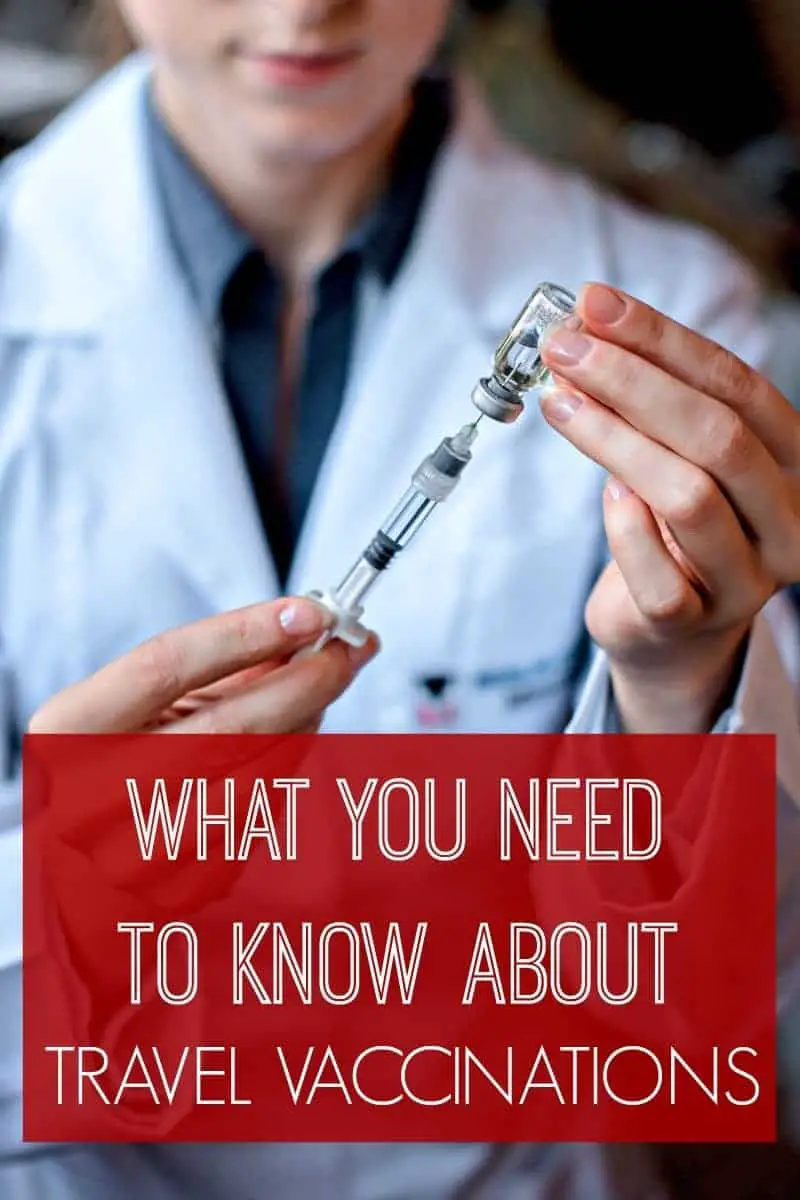As Canadians, we work to make our travel dollars stretch a little further when we plan holidays. And that mean looking beyond the borders of Canada and the United States to other fantastic destinations around the world.
The Caribbean, Mexico, and even South America are popular destinations where our money goes just a bit further. But with that, new issues can arise. Like how to get travel vaccinations for your family, before you leave on a sunny southern holiday.
We’ve done the heavy lifting for you on what you need to know with these travel vaccination tips for your family. We’ve conducted an interview with Sukhvir Seehra, a Shoppers Drug Mart Pharmacist and Associate owner in British Columbia, to answer all of your travel vaccination questions, set your mind at ease, and get you ready to vacay in style.

Travel Vaccination Tips
Can pharmacists dispense vaccines?
Yes. Canadian pharmacists can dispense vaccines to patients. They’ve always been able to do so, and within the past 10 years, can inject many vaccines as well.
Prior to dispensing a travel vaccine, the pharmacist conducts a travel consultation, including a detailed form for patients to fill out. Travel plans and destinations are discussed, and then the pharmacist will recommend the appropriate vaccine, make contact with the family doctor for the prescriptions – no doctor’s visit required (if the doctor says yes to the faxed prescription request) – fill the vaccine prescription and inject the travel vaccine.
Most pharmacies have high demand vaccines in stock, such as Hepatitis A and B, Cholera (Dukoral), and Typhoid. The pharmacist can order other less prescribed travel vaccines.
Is it ok to get multiple vaccinations all at once? What about vaccines for kids?
Getting multiple vaccinations at once isn’t an issue, even for kids. People are often very busy in the pre-trip planning stage, and it’s easier and quicker to get everything done at once. For kids (or adults) who don’t like needles, getting the shots over with at one time means that the pain is over and done then and there.
From an immune response perspective, the body needs to develop its immunity, which can take up to 1-4 weeks depending on the vaccine. The earlier a vaccine is administered (ideally 4-6 weeks prior to travel), the better it is for disease prevention.
What about the timing of the vaccines? How far in advance do we need to plan for shots or medicine?
It’s important to plan for your vaccination shots or pills 4-6 weeks ahead of your departure date. Too many people leave the shots until a few days or even a day before they leave. That isn’t a great plan as many vaccines may take up to 4 weeks to boost disease immunity in the body. You may have already returned home or been exposed to diseases during that time.
Can vaccines be spread out? Are there any side effects?
Vaccine injections can be spread out, but it’s better to do all necessary shots at once. It’s efficient and potentially less painful for patients. Some vaccines, such as the typhoid pill and oral Dukoral (cholera) need to be spaced by 8 hours, to ensure maximum effectiveness of the medications.
Is this vaccination really necessary depending upon where I’m going?
During the pharmacist’s travel consultation with patients, travellers are asked to fill out a detailed form. The form includes questions about patient health, actual trip plans and destinations, and trip style (5-star inclusive vs jungle backpacking), so the pharmacist can recommend the exact type of vaccinations that may be necessary.
Many countries require routine vaccine protocols. Some may require additional vaccinations for diseases like typhoid fever, japanese encephalitis, and yellow fever vaccinations. It’s good when planning to travel to determine if you need a vaccine schedule to space out vaccines, if several are required before a trip.
In the post-Covid travel world, many parts of the world may require proof of vaccination. It’s a good idea to have your yellow Vaccination Passport together with your passport in your carry-on bag. Traveling with a vaccine passport may well become the new travel routine for the future.
For malaria, the type of malaria prevention pills required will depend on where in world you’re headed, and the level of drug resistance in those regions. Sometimes a mosquito bite is more than just a bug bite!
Where can travelers find more detailed information about vaccines?
In addition to the pre-trip travel consultation with the pharmacist, patients can visit two excellent online public health sites.
The Immunizebc.ca website has simple and straightforward PDFs about each subject, including routine immunization schedules for children and travel information. The Government of Canada’s TravelHealth.gc.ca offers general immunization information, as well as international advisories and health warnings by country and world region.
Are oral meds or shots more effective?
Immunizations can take many forms; pills, oral liquids and vaccination injections. Some vaccines are available orally, such as Dukoral for cholera and traveller’s diarrhea. The powder is mixed in water and swallowed.
The Hepatitis A vaccine is only available as a shot, while Typhoid can be administered in pills (6 years+) or as a single shot (2 years+). Through the pre-trip travel consultation, the pharmacist can give professional advice on what form of immunization works best for the individual.
Are there specific risks for kids? What is best way for them to take the medication – pills, shots?
There is nothing to predispose children to any particular adverse reaction any more than an adult. As mentioned, some medications can be given as pills, shots or both, so talking to the pharmacist can help determine what may work best for your child.
What vaccines require multiple doses?
There are a few travel vaccines that require more than one dose. Dukoral is taken in 2 separate doses, as a powder mixed into water, taken one week apart, with the final dose taken at least a week before the trip.
Hepatitis A and B are common vaccinations recommended when travelling in Mexico and the Caribbean. Hepatitis A requires a following dose at 6 to 12 months, while Hepatitis B requires a following dose in one month, and another in 6 months.
How long does immunity last? Will a booster be required?
Disease immunity can last for years or a lifetime. The Typhoid oral vaccine lasts for 7 years before a booster is required. Hepatitis A vaccine immunity can last for 15-20 years after the second shot.
How much do vaccines cost?
The cost of immunization will depend on the destination and number of travelling family members. Some vaccines are more expensive than others, though an average cost is $40/60 per shot.
This can add up if you’re travelling to a destination where multiple vaccinations are recommended, such as to the jungles of South America. For a family of four, you may spend hundreds of dollars in disease prevention alone. It’s important to include vaccinations as part of your travel budget. If you have additional medical coverage, check if that private insurance covers the cost of travel vaccinations.
What about the Corona Virus? And the Zika Virus?
As of late 2020, several coronavirus vaccines have been approved in many countries in the world. These include the Pfizer-BioNTech and Moderna vaccines. Others are in queue for government approval. Many countries have purhased Covid vaccines and are vaccinating their citizens.
Currently, there is no vaccine available for the zika virus.
‘An ounce of prevention is worth a pound of cure.’
Vaccinations are very important for safe and healthy travel. Limiting your exposure is also key to preventing illness. Use insect repellent with DEET (check on the proper dosage for children). Wear light-colored, long-sleeved clothing and avoid dawn and dusk hours when mosquitoes thrive. Be careful with food and water. Avoid contaminated food and drinks with ice made from regular tap water, or just leave the ice out entirely.
Pin for Later

Photo Credits: Shutterstock
Disclosure: The Travelling Mom thanks Sukhvir Seehra for his time and expertise, and Shoppers Drug Mart for its sponsorship of this post.
Do you vaccinate yourself and your kids when you travel? Share your tips and comments below.
- The Best Carry-on Luggage 2024 - April 15, 2024
- 8 of the most spectacular BC roadtrips - March 28, 2024
- 21 fantastic things to do in Whistler in summer - March 23, 2024
